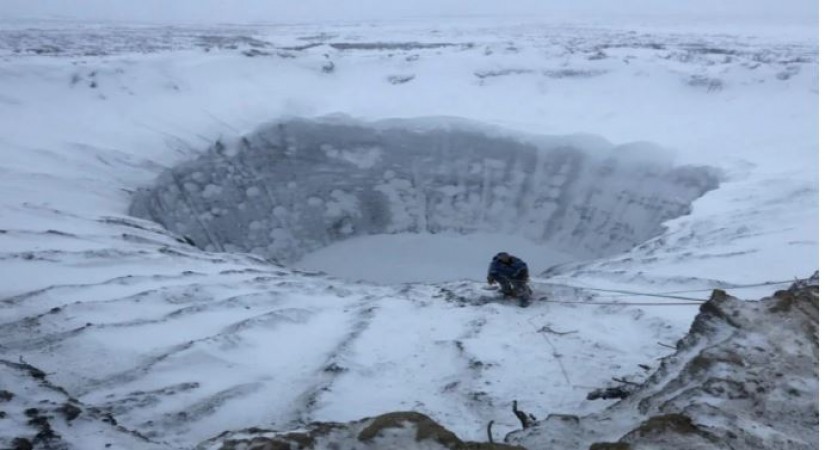
New Delhi: The melting of ancient permafrost due to climate change is an indication of a new threat to humans. Scientists have said that they have found more than two dozen viruses, one of which was deposited under the lake and is more than 48,500 years old. Scientists in Europe have also found some samples from permafrost in Russia's Siberia region, which they have tested. Scientists have revived 13 new pathogens and have also told their specialty. They have been named zombie viruses. According to the researchers, despite living in frozen ice for several thousand years, have become infectious.
Scientists have long warned that melting from permafrost due to atmospheric warming is going to release pre-trapped greenhouse gases like methane and this can further worsen the environment. But there is little information about its effect on dormant pathogens.
Research teams from Russia, Germany, and France have said that the biological risk of reviving their researched virus was completely zero because they targeted such a strain. Especially those who have infected amoeba microbes. A virus that can infect animals or humans is a very troublesome thing.
Thawing of permafrost will increase the risk: 'It is possible that ancient permafrost may release these viruses after thawing', they wrote in an article posted on the preprint repository BioRxiv. This article has not yet been reviewed. it was said in this, 'It is still impossible to estimate for how long a virus is spreading infection after coming in outdoor conditions, how it can be stopped and how many times a person can be infected in an interval.' It further states "But this risk will increase in terms of global warming as the permafrost continues to melt and more and more people populate the Arctic due to industrial ventures."
US Senate passes historic same-sex marriage bill
FIFA WC: Southgate satisfied as halftime turnaround sees England beat Wales
Australian lawmakers criticise former PM Morrison for his secret ministries